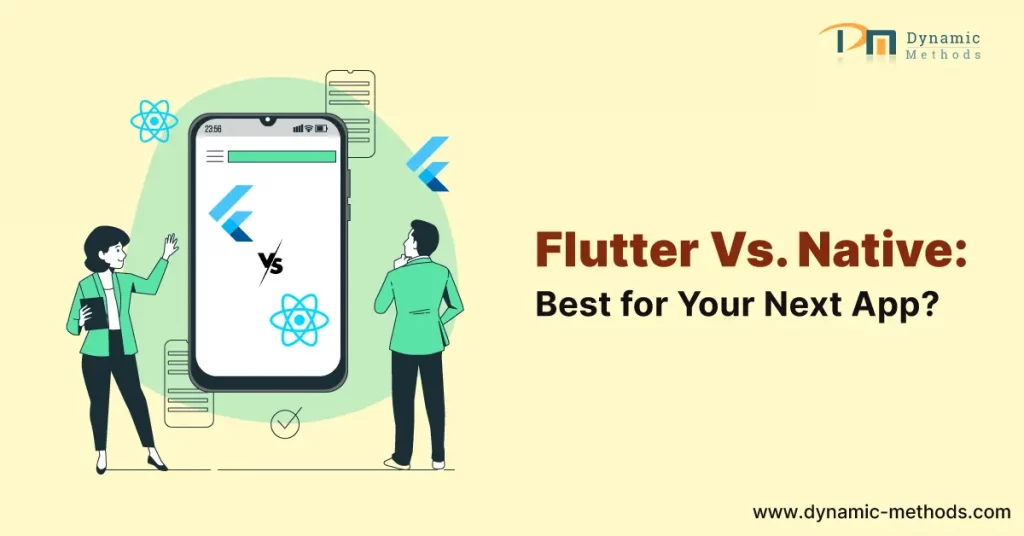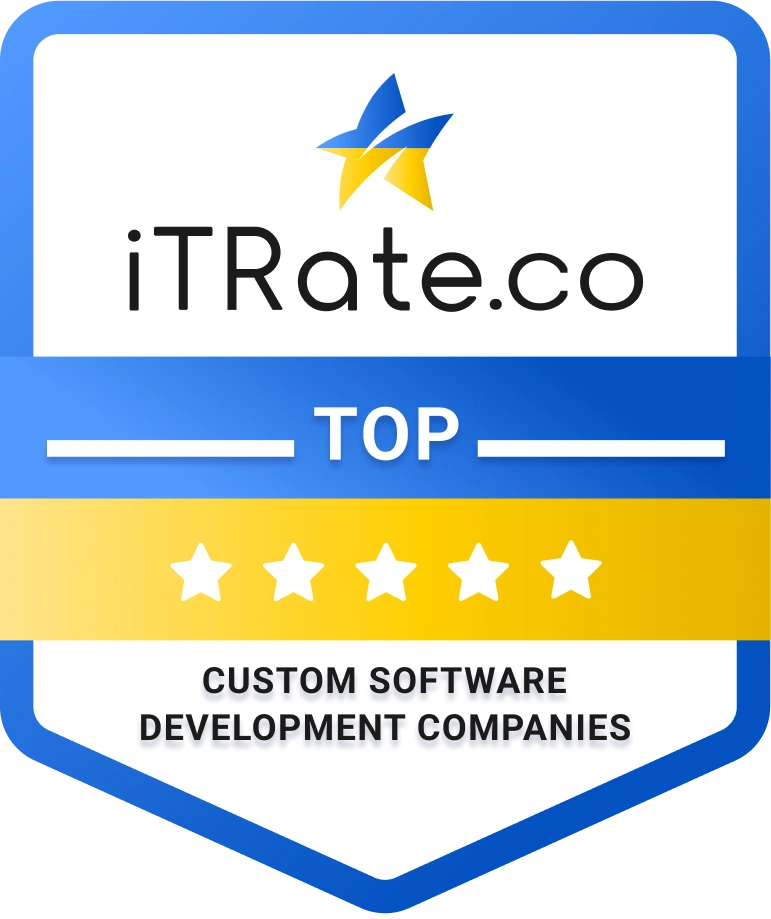
In the fast-paced world of mobile app development, choosing the right technology can significantly impact the success of your project. Flutter and Native are two popular choices, each with its unique strengths and weaknesses.
This article aims to provide a detailed analysis of Flutter and Native app development, helping you make an informed decision for your next mobile app project.
Flutter: A Versatile Cross-Platform Framework
Flutter is Google’s open-source UI software development toolkit, widely known for its capability to create beautiful and high-performing apps across multiple platforms using a single codebase. Let’s dive into the aspects that make Flutter a compelling choice:
1. Hot Reload for Efficient Development
Flutter’s “Hot Reload” feature is a game-changer for developers. It allows real-time code updates, making the development process faster and more efficient. Developers can instantly see the changes they make, reducing turnaround time and facilitating faster bug fixes.
2. Consistent UI Across Platforms
With Flutter, you can achieve a consistent user interface and user experience across various platforms. This uniformity is crucial in building a cohesive brand image and delivering a seamless user experience.
3. Rich Widget Library
Flutter offers a vast array of pre-built widgets, making it easy to implement various UI elements. These widgets can be customized, saving development time and effort.
4. Single Codebase for iOS and Andro
One of the most significant advantages of using Flutter is the ability to write a single codebase that works on both iOS and Android platforms. This leads to reduced development costs and faster time-to-market.
5. Strong Community Support
Flutter has a vibrant and active community of developers who constantly contribute to its growth. The community provides extensive documentation, plugins, and packages, making the development process more accessible.
6. Fast Performance
Flutter apps are known for their excellent performance. The framework uses the Skia graphics library, which enables smooth animations and a delightful user experience
Native: The Traditional Approach
Native app development involves writing separate codebases for each platform (iOS and Android) using the official programming languages and tools provided by Apple and Google. Let’s explore the strengths of Native app development:
7. Platform-Specific Performance Optimization
Native apps can leverage the full capabilities of the underlying platform, resulting in optimized performance and seamless integration with the device’s features.
8. Access to Latest Features
Native development provides immediate access to the latest features and updates introduced by the platform, allowing developers to stay at the forefront of mobile technology.
9. Native User Experience
By adhering to platform-specific design guidelines, Native apps offer a familiar user experience, increasing user engagement and satisfaction.
10. Broad Market Reach
Both the Apple App Store and Google Play Store have vast user bases. Developing a Native app allows you to tap into these existing markets and reach a broader audience.
11. Enhanced Security
Native apps often benefit from enhanced security measures provided by the platform, ensuring robust protection of user data.
Comparing Flutter and Native: A Head-to-Head Comparison
Now that we have explored the strengths of Flutter and Native individually, let’s compare them side by side:
Flutter Vs. Native: Which is the Best Choice for Your Next Mobile App?
Choosing between Flutter and Native for your next mobile app development project is a critical decision that requires careful consideration. Let’s take a deeper look at the factors to consider when making your choice:
1. App Complexity and Functionality
Consider the complexity and functionality of your app. If your app requires advanced platform-specific features and integrations, Native development might be more suitable.
However, for relatively simple apps with standard UI components, Flutter’s cross-platform capabilities can save time and effort.
2. Development Team Expertise
Assess the expertise of your development team. If your team is experienced in platform-specific languages like Swift or Kotlin, Native development might be a natural choice.
On the other hand, if your team is well-versed in Dart (Flutter’s programming language), Flutter development could be a smoother process.
3. Time-to-Market
Time-to-market is a crucial factor in app development. Flutter’s single codebase and “Hot Reload” feature can expedite development, making it a preferred choice when speed is a priority.
4. User Interface and Experience
Consider the desired user interface and experience. Flutter’s widget library offers a wide range of customizable components, while Native development allows you to leverage platform-specific design elements for a familiar user experience.
5. Budget Constraints
Budget considerations play a significant role in any project. Flutter’s cross-platform approach can reduce development costs by eliminating the need to maintain separate codebases for iOS and Android.
6. Long-Term Maintenance
Think about the long-term maintenance of your app. Native development may require platform-specific updates and maintenance, while Flutter’s single codebase might ease ongoing maintenance efforts.
Conclusion
Choosing between Flutter and Native for your next mobile app development project is a decision that requires a thoughtful evaluation of various factors. Both options have their strengths and are suitable for different scenarios.
Dynamic Methods is the most reliable mobile application development company in India. We have expertise in building top-class web, mobile app, and software developments. Our company creates the best mobility solutions that enhance the customer experience. We deliver high performance mobile apps that help your business reach new heights. Talk with us.
Flutter’s cross-platform capabilities, efficient development with “Hot Reload,” and strong community support make it an excellent choice for startups and projects with budget constraints.
On the other hand, Native development excels in delivering platform-specific performance and a familiar user experience, making it ideal for complex and feature-rich apps.
Ultimately, the right choice depends on the unique requirements of your app, the expertise of your development team, and your long-term goals. Consider the factors outlined in this article to make an informed decision that aligns with your project’s vision and objectives.
Feel free to leave a comment below, sharing your thoughts on Flutter Vs. Native and your experiences with mobile app development. If you found this article helpful, don’t forget to like and share it with others in your network who might be facing a similar dilemma.
Thank you for reading!
FAQs
1. Is Flutter better than Native for cross-platform app development?
Flutter has gained popularity for cross-platform development due to its hot reload feature, consistent UI, and single codebase for multiple platforms. However, the choice between Flutter and Native depends on various factors, including the app’s complexity, target audience, and development team expertise.
2. What programming languages are used for Native app development?
For iOS, Native app development involves using Swift or Objective-C, while for Android, developers use Java or Kotlin.
3. Does Flutter have access to device-specific features?
Yes, Flutter allows developers to access device-specific features using platform channels and third-party plugins.
4. Which option is more cost-effective: Flutter or Native?
Flutter’s single codebase and faster development speed can make it a more cost-effective option, especially for cross-platform app projects. However, Native development might be more suitable for complex, platform-specific apps
5. Can Native apps be as visually appealing as Flutter apps?
Yes, Native apps can achieve stunning visuals by leveraging platform-specific design elements and animations. However, Flutter’s widget library also offers a wide range of visually appealing components.
6. Are there any limitations to using Flutter for app development?
While Flutter is a powerful framework, it may have limitations in terms of accessing certain device-specific features that are deeply integrated into the platform. Additionally, developers with expertise in platform-specific languages may find Native development more suitable for certain projects.










Hello my loved one I want to say that this post is amazing great written and include almost all significant infos I would like to look extra posts like this
Hello! I’m so glad you loved the post, and I appreciate your kind words. If you’re interested in more content like this, I’ll do my best to provide valuable and enjoyable posts in the future. If you have any specific topics you’d like to see or any questions, feel free to let me know. Thank you for your support!
Your point of view caught my eye and was very interesting. Thanks. I have a question for you.
I’m glad to hear you found the perspective interesting! Please feel free to ask your question. I am here to help.
Thank you I have just been searching for information approximately this topic for a while and yours is the best I have found out so far However what in regards to the bottom line Are you certain concerning the supply
Thank you for your well wishes! I’m glad you found the information useful. Regarding your question about certainty related to the “bottom line” and supply of information, it may be beneficial to consult direct sources or experts in the field. If you have any more questions or need further clarification on any topic, don’t hesitate to ask!
Your point of view caught my eye and was very interesting. Thanks. I have a question for you.
I’m glad you found the perspective interesting! Please feel free to ask your question and I will do my best to provide a helpful answer.
Hi my loved one I wish to say that this post is amazing nice written and include approximately all vital infos Id like to peer more posts like this
Thank you so much for your kind words! I’m glad you enjoyed the post and found the information valuable. I’ll definitely work on creating more content like this. Stay tuned for more posts!
Thank you for the auspicious writeup It in fact was a amusement account it Look advanced to more added agreeable from you By the way how could we communicate
Thank you for your kind words! I’m glad you enjoyed the writeup. To communicate further, you can reach out to me through the contact form on my website or send me an email. Looking forward to hearing from you!
Thank you for your sharing. I am worried that I lack creative ideas. It is your article that makes me full of hope. Thank you. But, I have a question, can you help me?
I’m glad to hear that the article has inspired you! I’d be happy to help with your question. Please let me know what you need assistance with.
I don’t think the title of your article matches the content lol. Just kidding, mainly because I had some doubts after reading the article.
Thanks for your comment! Feel free to share your doubts, and I’ll be happy to clarify them.
Can you be more specific about the content of your article? After reading it, I still have some doubts. Hope you can help me.
Thank you for your feedback! Please let me know what specific doubts you have, and I’ll be happy to clarify them for you.
Can you be more specific about the content of your article? After reading it, I still have some doubts. Hope you can help me.
Thank you for your comment! Please let me know your specific doubts, and I’ll be happy to clarify them for you.
Can you be more specific about the content of your article? After reading it, I still have some doubts. Hope you can help me.
Can you be more specific about the content of your article? After reading it, I still have some doubts. Hope you can help me.
Thank you for your feedback! Please share the specific points you have doubts about, and I’ll be happy to clarify them for you.
Your article helped me a lot, is there any more related content? Thanks!
I’m glad it helped! Yes, there’s more related content—feel free to explore other posts on the blog.